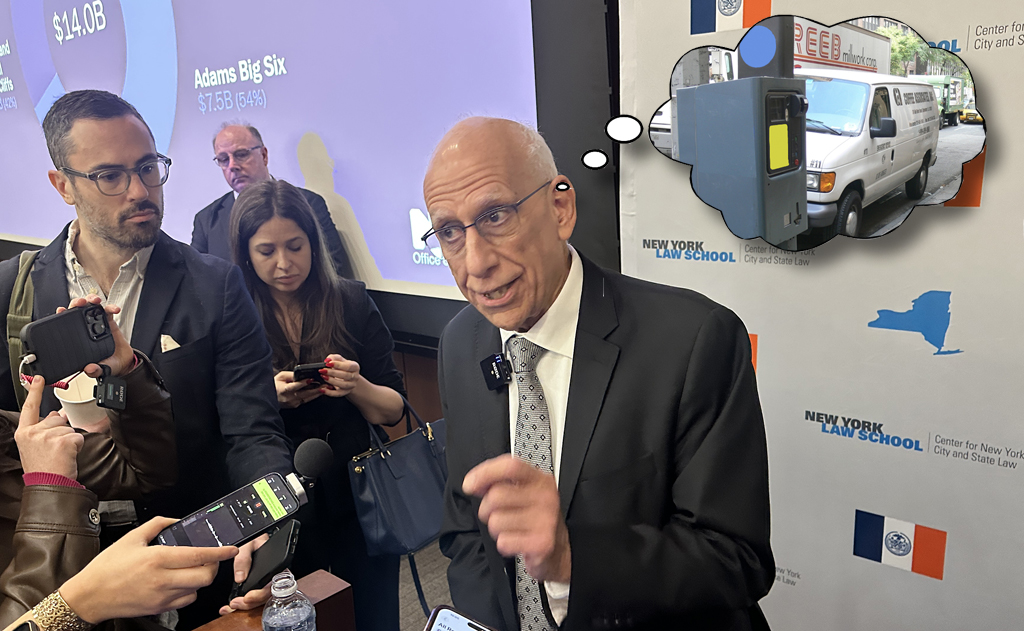City parking meters are a gold mine, and in Chicago, Morgan Stanley is rolling in parking riches. Secret
company documents leaked to reporters show the company will rake in a 70 percent profit
margin this year from its $1.15 billion, 75-year lease of Chicago's parking
meters. This profit is on top of the millions Morgan paid to buy new, high-tech
meters. The good times will keep on rolling for investors: In 2010, after another meter
price hike, Morgan expects to make monthly profits of $4.8 million, roughly 55 percent
higher than in 2009.
 Graphic: New York Times/Chicago News Cooperative.
Graphic: New York Times/Chicago News Cooperative.Last December, Streetsblog estimated that the Chicago
deal would cost taxpayers "several hundred million to even a billion dollars in
foregone parking revenue." Using the latest Morgan numbers, privatization
expert Roger Skurski told reporters his "conservative estimate"
-- Chicago could have earned about $670 million more by holding on to its meters. Back in June, before Morgan's revenue was known, Chicago's inspector general estimated the city could have gotten $2 billion in revenue, or $850
million more than it did from Morgan, had it raised rates and kept meter revenue
to itself.
Streetsblog has been following the Chicago parking
privatization closely because it is the poster child for all that can go wrong
with Public Private Partnerships, or PPPs. The basic idea behind a PPP is that
the government leases public transportation infrastructure -- say a bridge,
highway, airport, or parking meters -- that can generate user fees. In exchange
for the fees, a private investor pays the government a large upfront fee or
assumes the cost of improving the infrastructure. PPPs are popular in Europe, especially at
airports.
Sustainable transportation advocates should care about PPPs for
a number of reasons. First, politicians and bureaucrats are captivated by the
fantasy that PPPs are the ultimate free lunch, generating billions in
transportation investment at no cost to the taxpayer. President Obama's
euphemism for PPPs is "creative financing." Here in New York, state officials
have repeatedly presented a PPP as the way to raise billions for the
astronomical cost of replacing the Tappan Zee Bridge. This is dangerous thinking. PPPs do inflict a cost, and it's a big one. Huge amounts of revenue that could be directed to
public transit, or crucial road and bridge repair, are instead going to Wall
Street.
The second concern is that PPPs allow public officials to skew
the public planning and review process and put private profit before public
benefit. A private investor has
tremendous leverage over what gets built if they are the government's main
financing option. The investor's goal is
to make money, not to produce the greatest public benefit over many decades.
Despite the latest revelation, Chicago is only
beginning to recognize the inherent problems with privatizations. According to
the Times, Alderman Scott Waguespack introduced
a measure that would require an "independent third-party valuation" of major
asset lease proposals before any future privatization deal is completed. The
legislation would require "a comparison of public retention and private leasing
over the life cycle of the agreement." This could serve as an important safeguard, but so far, the measure only has 12 co-sponsors among the council's 49 other
members.





